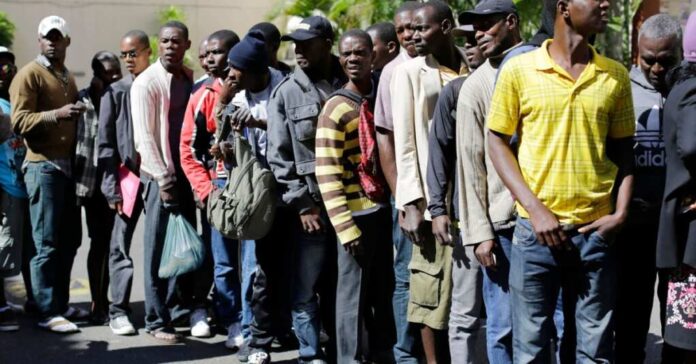Amid the chaos brewing in Haiti, the U.S. Department of Homeland Security (DHS) has issued a stern warning: Haitian nationals attempting to enter the United States illegally by sea will be promptly sent back home. This declaration comes amidst concerns of a potential surge in maritime crossings fueled by the turmoil gripping the Caribbean island.
Republican Florida Governor Ron DeSantis isn’t taking any chances. He’s already mobilized his state to brace for a possible influx of migrants sailing from Haiti’s shores.
“While migration flows in the Caribbean remain relatively low for now,” emphasized a DHS spokesperson, “we’re keeping a close eye on any upticks, particularly those attempting to reach the U.S. via boat.”
The situation in Haiti is dire, with armed gangs and revolutionaries challenging the country’s fragile government. It’s no wonder there’s concern about desperate individuals resorting to dangerous sea voyages in search of refuge.
“The risks associated with irregular migration, especially by sea, cannot be overstated,” warned the DHS official. “It’s a dangerous journey that often ends in tragedy.”
Under current policy, noncitizens intercepted at sea without a valid claim for asylum or protection face immediate repatriation. But how does DHS determine who qualifies for entry or asylum? Well, they need to offer a clear answer to that question.
Meanwhile, the U.S. Coast Guard, operating under DHS, is diligently patrolling the waters, intercepting and repatriating those attempting unauthorized crossings. Just this week, the Coast Guard Cutter Venturous returned 65 Haitian nationals home following an at-sea rescue near the Bahamian island of Great Inagua.
Captain Willie Carmichael, who is leading Operation Vigilant Sentry, emphasized the dangers of such journeys. “The maritime environment is unforgiving,” he stated. We’ll continue collaborating with our partners to prevent illegal migration by sea, no matter the nationality.”
It’s a tough stance, but it’s necessary. The safety of those attempting these risky journeys and the integrity of our borders cannot be compromised.
As tensions simmer in Haiti, the last thing we need is a surge of migrants risking their lives on makeshift vessels. It’s time for decisive action to maintain order and protect both American and migrant lives.
Haiti’s tumultuous history is a tale of political turmoil and social upheaval. From the oppressive reign of President François Duvalier and his son Jean-Claude Duvalier to the military rule under Lieutenant General Joseph Raoul Cédras, the country has been plagued by instability for decades. Even after efforts toward political reform, corruption and violence have persisted, casting a shadow over the nation’s aspirations for stability.
The intervention of United Nations Peacekeeping forces in the 1990s, 2000s, and 2010s aimed to restore order, but Haiti continued to grapple with unrest. The year 2004 witnessed another violent revolt, and the catastrophic earthquake in 2010 further compounded the country’s woes, leaving a staggering death toll in its wake.
The assassination of President Jovenel Moïse in 2021 plunged Haiti into further uncertainty. Allegations surrounding Prime Minister Ariel Henry’s alleged involvement in the assassination plot added fuel to the fire, delaying the promised new elections. Amidst this chaos, Haiti has become a battleground for various factions, including government forces and alliances of street gangs and armed groups such as the Revolutionary Forces of the G9 Family and Allies (G9) and GPep.
Recent events have only escalated tensions. Gunmen claiming allegiance to G9 staged brazen attacks, including storming prisons and firing at the main airport during Prime Minister Henry’s absence on a state visit to Kenya. The situation has become so dire that the U.S. Embassy in Haiti has begun advising Americans to leave and evacuating its personnel. The U.S. military has deployed additional security forces to fortify its defenses, including the formidable Fleet Anti-terrorism Security Team (FAST).
Amid mounting pressure, Prime Minister Henry has announced his intention to resign once a transitional presidential council is established and an interim leader is appointed. This move reflects the gravity of Haiti’s current predicament as the nation teeters on the brink of further chaos.
Yet, amidst this chaos, questions linger. How long will Haiti’s turmoil persist? What role should the U.S. play in stabilizing the situation?
One thing is clear: until peace is restored and Haitians can pursue a better future in their homeland, we must remain vigilant against illegal migration, ensuring safety for all involved.



















